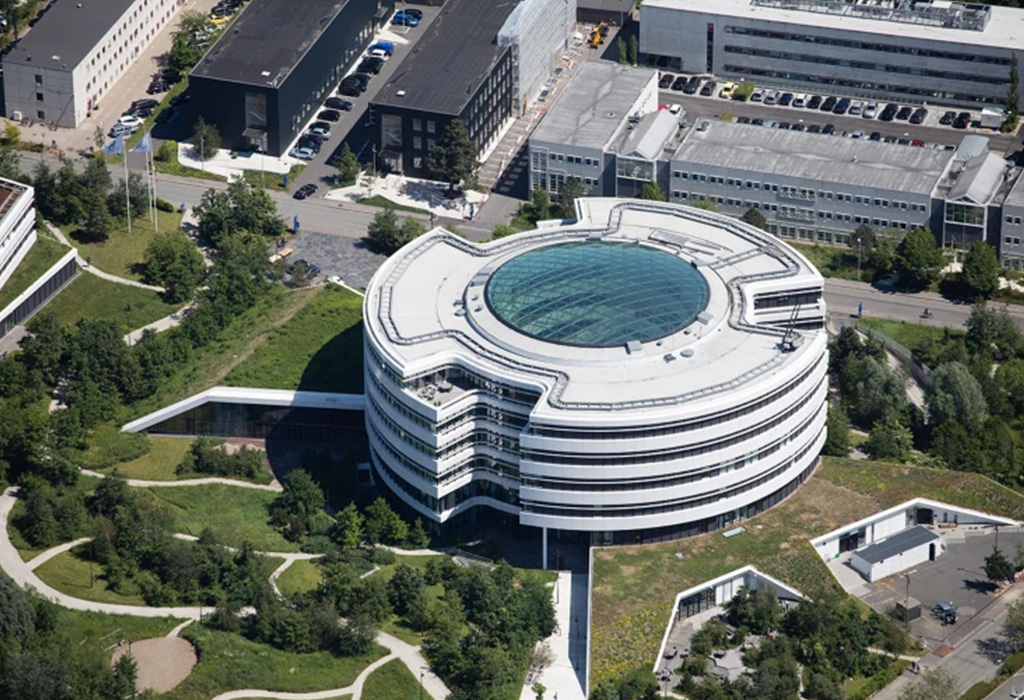Cancer, often referred to as the monster of our society, claims the lives of hundreds of thousands of individuals each year. In the United States alone, more than 600,000 people succumbed to this relentless disease last year, as reported by the American Cancer Society. However, amidst this grim reality, the landscape of cancer treatment is experiencing a profound shift driven by relentless research and groundbreaking innovations.
One promising avenue in the fight against cancer is immunotherapy, which leverages the body’s own immune system to combat cancer cells. As researchers delve deeper into understanding the complexities of this disease, they are uncovering novel approaches to enhance the efficacy and safety of cancer treatments.
In a recent breakthrough, researchers at the College of Engineering have pioneered a transformative approach to cancer immunotherapy. Led by Rong Tong, associate professor in chemical engineering, and Wenjun “Rebecca” Cai, associate professor in materials science and engineering, this collaborative effort has yielded promising results that could revolutionize cancer treatment.
Unlocking the Power of Immunotherapy
Immunotherapy holds immense potential as a viable solution in the fight against cancer. Unlike traditional treatments such as chemotherapy, which indiscriminately target both healthy and cancerous cells, immunotherapy seeks to harness the body’s natural defenses to selectively eradicate cancer cells while minimizing harm to healthy tissues.
Central to this approach is the use of cytokines, potent signaling proteins that play a crucial role in regulating immune responses. However, the widespread application of cytokine-based therapies has been hindered by their potential for systemic toxicity. Enter Tong and Cai’s innovative strategy.
Their research, recently published in the journal Science Advances, outlines a novel approach to immunotherapy that addresses the challenges associated with cytokine-based treatments. By engineering specialized particles capable of delivering cytokines directly to tumor sites, the researchers have devised a method that maximizes therapeutic efficacy while minimizing off-target effects.
Precision Medicine: Targeting Cancer Cells
A key feature of Tong and Cai’s approach is its precision targeting of cancer cells. Through meticulous design and engineering, the researchers have developed microparticles that effectively deliver cytokines to tumor sites, where they activate the immune system to mount a targeted attack against cancer cells.
Moreover, this localized delivery system ensures sustained cytokine presence within the tumor microenvironment, enhancing the recruitment and activation of immune cells to eradicate cancerous growths. By anchoring cytokines to these specialized particles, Tong and Cai have effectively mitigated the risk of systemic toxicity, paving the way for safer and more effective cancer treatments.
A Multidisciplinary Approach to Innovation
The success of Tong and Cai’s research underscores the importance of interdisciplinary collaboration in advancing cancer treatment. By integrating expertise from fields such as chemical engineering and materials science, the researchers have developed a synergistic approach that capitalizes on the unique strengths of each discipline.
Looking ahead, the potential applications of their technology extend beyond cytokine-based therapies. The modular nature of their platform opens possibilities for delivering a wide range of immunostimulatory drugs, offering new avenues for personalized cancer treatment.
Towards a Brighter Future
As the field of cancer treatment continues to evolve, innovations like Tong and Cai’s hold the promise of transforming the landscape of cancer care. By harnessing the power of engineering and innovation, researchers are inching closer to realizing the vision of precision medicine, where treatments are tailored to individual patients with minimal side effects.
In the relentless pursuit of a cure for cancer, collaboration and innovation are our greatest assets. Through bold initiatives and pioneering research, we stand on the cusp of a new era in cancer treatment—one where hope prevails, and lives are forever changed for the better.
Join us at the 6th Vaccine World East Asia Congress on August 13th – 14th, 2024, at Songdo Convensia, Incheon, South Korea. This congress is a pivotal gathering where brilliant minds convene to discuss cutting-edge advancements in vaccine research and development (R&D), innovative manufacturing processes, and transformative technologies. With a focus on fostering collaboration and sharing groundbreaking case studies, our agenda aims to navigate the ever-evolving terrain of vaccine innovation. From exploring immunology breakthroughs to optimizing manufacturing capabilities, this congress provides a platform for engaging discussions and insightful analyses that shape the future of vaccines not only in East Asia but on a global scale. Find out more at: https://imapac.com/events/vaccine-world-east-asia/





